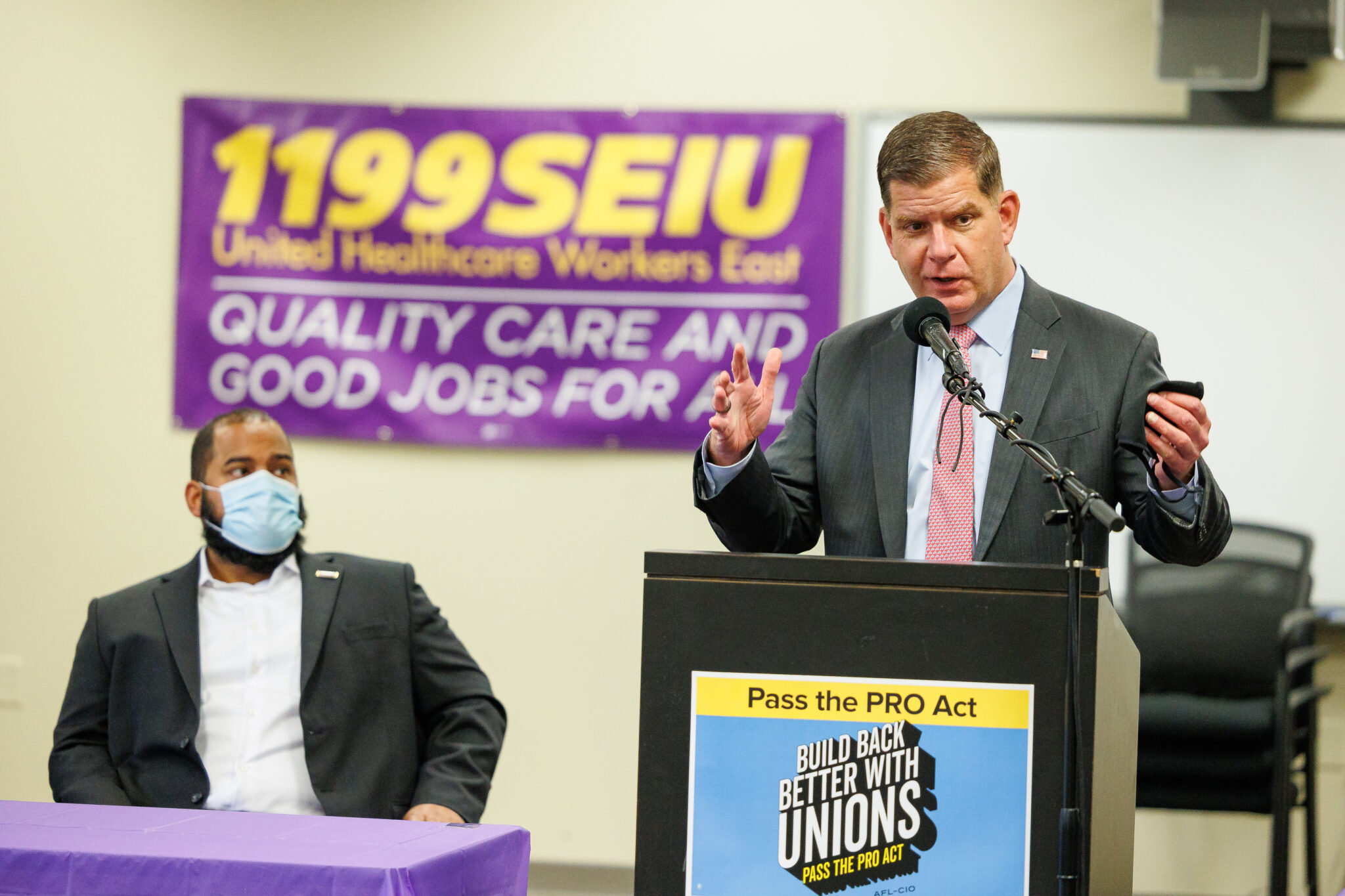
Gurtaran Johal is a student at Harvard Law School.
In today’s news and commentary, the U.S. Department of Labor announces termination of mental health and child care benefits for its own employees; SEIU pursues its challenge to the NLRB’s 2020 joint employer rule in the D.C. Circuit; and Columbia University cuts 180 staffers in response to the Trump Administration’s funding cuts.
Bloomberg Law reports that effective May 9th, the U.S. Department of Labor is terminating its Worklife4You program, which provides support for expecting parents, eldercare, and special needs. DOL describes its WorkLife4You program as a “free resource and referral service” which can help DOL employees “manage personal and family responsibilities.” In addition, the Department is ending its employee assistance program, which provides mental health services to employees, also effective May 9, except for a few remaining sessions for employees in “drug testing designated positions” or who were “recommended for counseling as part of an employee relations matter.” DOL’s union plans to challenge the termination of these programs, arguing that these are benefits that the collective bargaining agreement requires the Department and the union to promote to its employees.
Meanwhile, SEIU has renewed its challenge to the NLRB’s 2020 joint employer rule, bringing it to the D.C. Circuit. On February 26, 2020, the NLRB, under the first Trump administration, published a final rule tightening the standard for whether workers are jointly employed by affiliated companies. The final rule stated that a company is a joint employer if it has “substantial direct and immediate control over essential terms and conditions of employment.” This was a significant move away from the NLRB’s 2015 decision in Browning-Ferris, which allowed a company to be a joint employer even in circumstances of indirect control. SEIU originally filed suit in September 2021 in the U.S. District Court for the District of Columbia to stop the rule’s enforcement and deem it a violation of the Administrative Procedure Act. The case remained dormant after the NLRB began developing a new joint employer standard. On May 5, however, in light of the Board’s uncertain ability to act on the petition for joint-employer rulemaking, SEIU requested that Judge Rudolph Contreras of the U.S. District Court for the District of Columbia hold the case in abeyance while SEIU takes its challenge to the D.C. Circuit, a request that Judge Contreras granted.
Lastly, on May 6, Columbia University announced that it would lay off 180 researchers employed through federal grants impacted by the Trump Administration’s funding cuts. In March 2025, the Trump administration cut $400 million in federal funding from Columbia, resulting in significant strains on the university’s budget. In its letter, signed by top Columbia administration officials, the university noted that it is engaged in a “two-pronged effort” related to these terminated grants, focusing on restoring partnerships with government agencies while reducing expenditures given current financial pressures. The university also stated that the 180 laid-off researchers constituted 20% of the individuals impacted by the funding cuts, demonstrating the extent and impact that such layoffs will have.






Daily News & Commentary
Start your day with our roundup of the latest labor developments. See all
January 28
Over 15,000 New York City nurses continue to strike with support from Mayor Mamdani; a judge grants a preliminary injunction that prevents DHS from ending family reunification parole programs for thousands of family members of U.S. citizens and green-card holders; and decisions in SDNY address whether employees may receive accommodations for telework due to potential exposure to COVID-19 when essential functions cannot be completed at home.
January 27
NYC's new delivery-app tipping law takes effect; 31,000 Kaiser Permanente nurses and healthcare workers go on strike; the NJ Appellate Division revives Atlantic City casino workers’ lawsuit challenging the state’s casino smoking exemption.
January 26
Unions mourn Alex Pretti, EEOC concentrates power, courts decide reach of EFAA.
January 25
Uber and Lyft face class actions against “women preference” matching, Virginia home healthcare workers push for a collective bargaining bill, and the NLRB launches a new intake protocol.
January 22
Hyundai’s labor union warns against the introduction of humanoid robots; Oregon and California trades unions take different paths to advocate for union jobs.
January 20
In today’s news and commentary, SEIU advocates for a wealth tax, the DOL gets a budget increase, and the NLRB struggles with its workforce. The SEIU United Healthcare Workers West is advancing a California ballot initiative to impose a one-time 5% tax on personal wealth above $1 billion, aiming to raise funds for the state’s […]